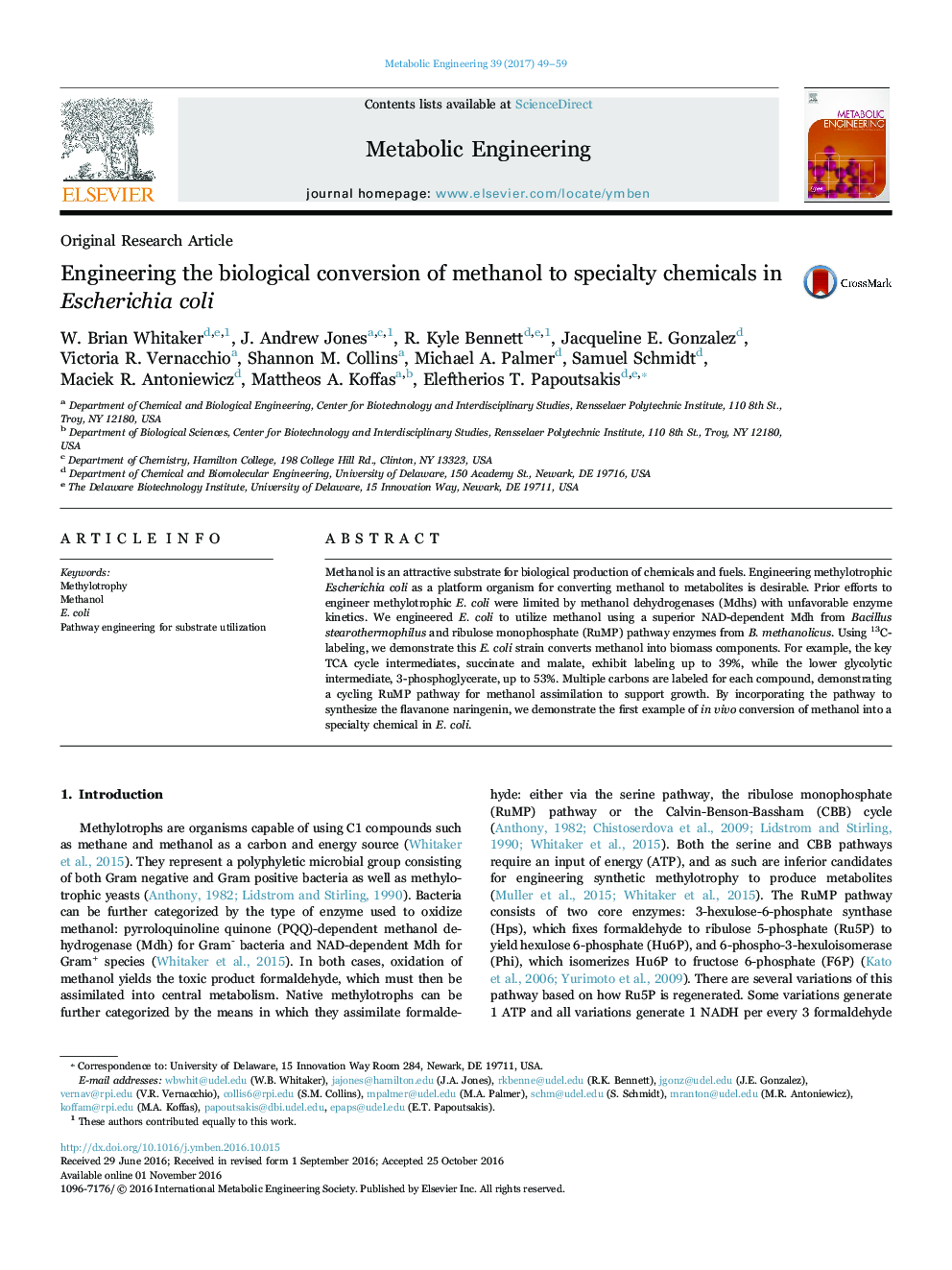| Article ID | Journal | Published Year | Pages | File Type |
|---|---|---|---|---|
| 6452771 | Metabolic Engineering | 2017 | 11 Pages |
â¢Engineered methanol utilization pathway that allows E. coli to consume methanol.â¢Methanol contributes to increased biomass yields in engineered strain.â¢Labeled methanol is converted into biomass components.â¢Production of naringenin from methanol.
Methanol is an attractive substrate for biological production of chemicals and fuels. Engineering methylotrophic Escherichia coli as a platform organism for converting methanol to metabolites is desirable. Prior efforts to engineer methylotrophic E. coli were limited by methanol dehydrogenases (Mdhs) with unfavorable enzyme kinetics. We engineered E. coli to utilize methanol using a superior NAD-dependent Mdh from Bacillus stearothermophilus and ribulose monophosphate (RuMP) pathway enzymes from B. methanolicus. Using 13C-labeling, we demonstrate this E. coli strain converts methanol into biomass components. For example, the key TCA cycle intermediates, succinate and malate, exhibit labeling up to 39%, while the lower glycolytic intermediate, 3-phosphoglycerate, up to 53%. Multiple carbons are labeled for each compound, demonstrating a cycling RuMP pathway for methanol assimilation to support growth. By incorporating the pathway to synthesize the flavanone naringenin, we demonstrate the first example of in vivo conversion of methanol into a specialty chemical in E. coli.
